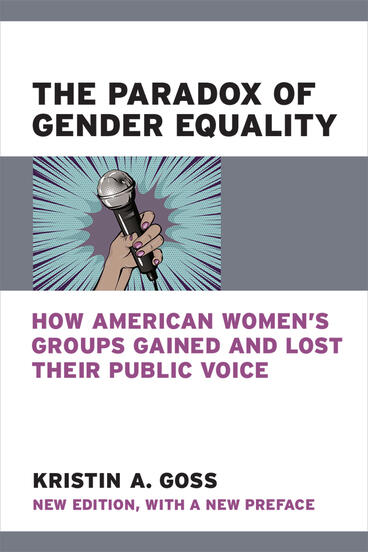The Paradox of Gender Equality
How American Women's Groups Gained and Lost Their Public Voice
New Edition, With a New Preface
A challenge to conventional notions about American women’s collective engagement in public policy-making
Description
Kristin A. Goss examines how women’s civic place has changed over the span of more than 120 years, how public policy has driven these changes, and why these changes matter for women and American democracy. As measured by women’s groups’ appearances before the U.S. Congress, women’s collective political engagement continued to grow between 1920 and 1960—when many conventional accounts claim it declined—and declined after 1980, when it might have been expected to grow.
Goss asks what women have gained, and perhaps lost, through expanded incorporation, as well as whether single-sex organizations continue to matter in 21st-century America.
Kristin A. Goss is Kevin D. Gorter Professor of Public Policy and Political Science in the Sanford School of Public Policy at Duke University.
Reviews
“[Goss] presents a fresh perspective on women's collective political action and engagement that brings to life common concepts within the lexicon of American political studies. ... Highly recommended.”
—Choice
“This ambitious book introduces many questions, frameworks, and theories that promise to animate graduate courses as well as conference
sessions. Goss’s calculations of appearances by large-membership women’s organizations before Congress to chart trends in the depth and breadth of women’s civic participation will no doubt stir debate.”
—The Journal of American History
Named a Choice Outstanding Academic Title
One of the Huffington Post's Best Political Science Books of 2013

